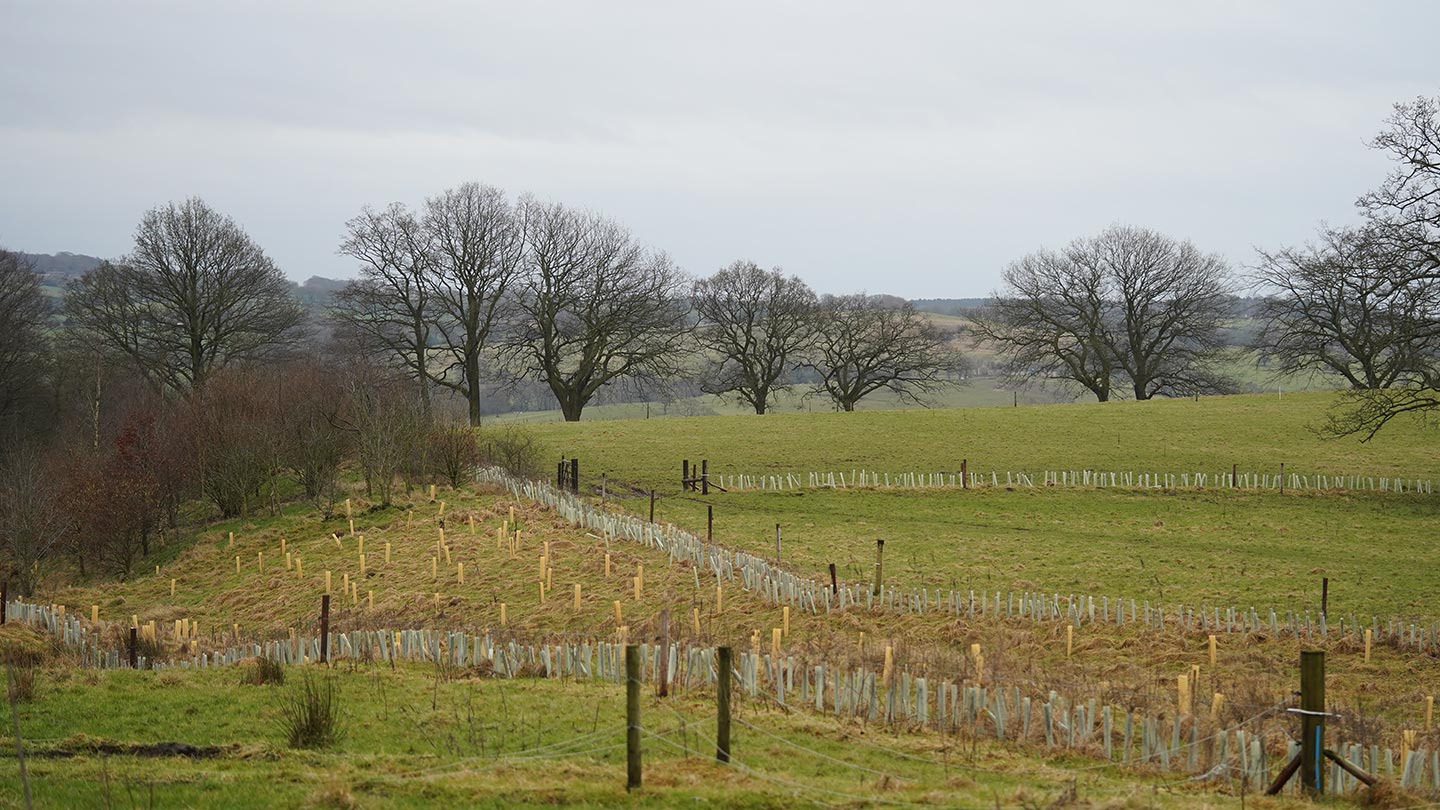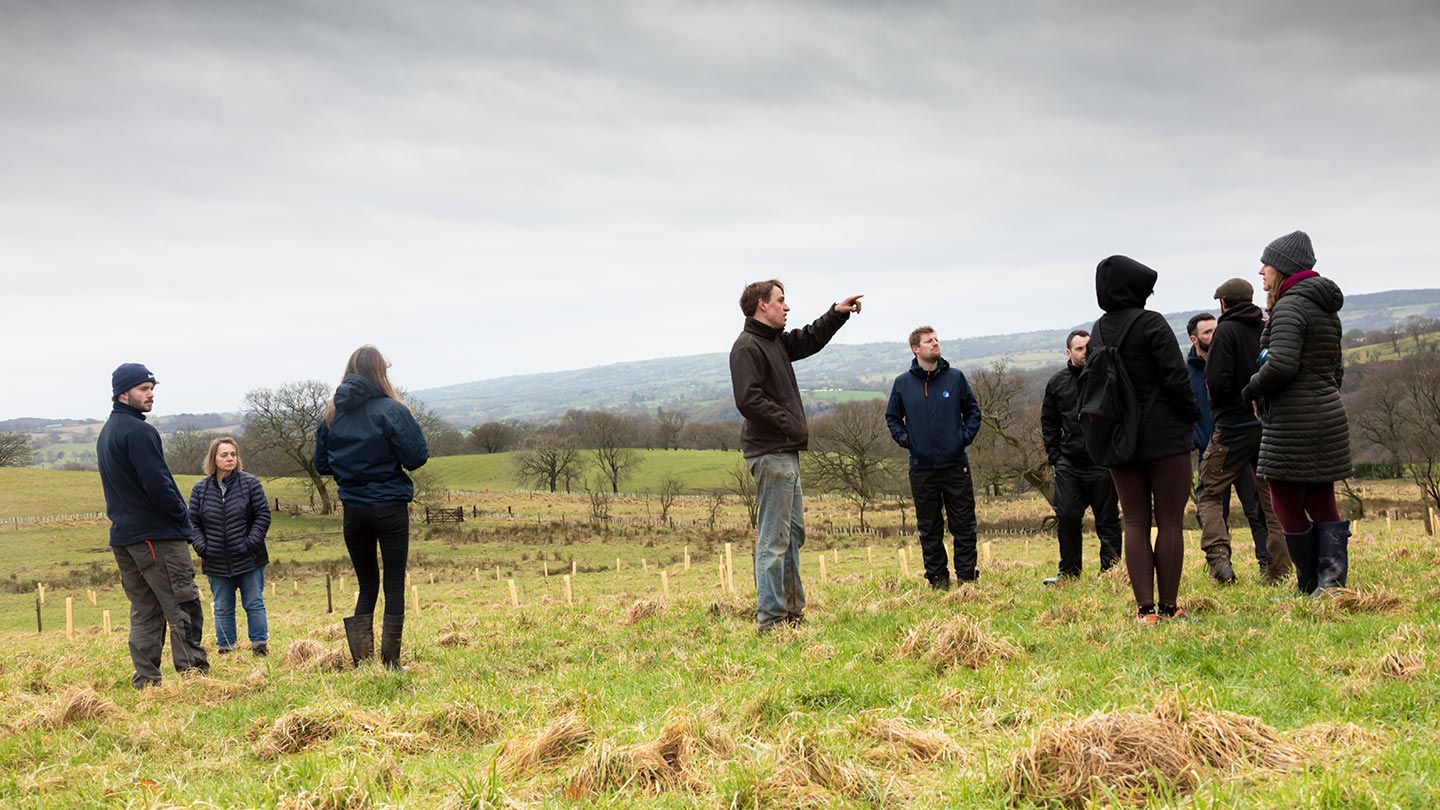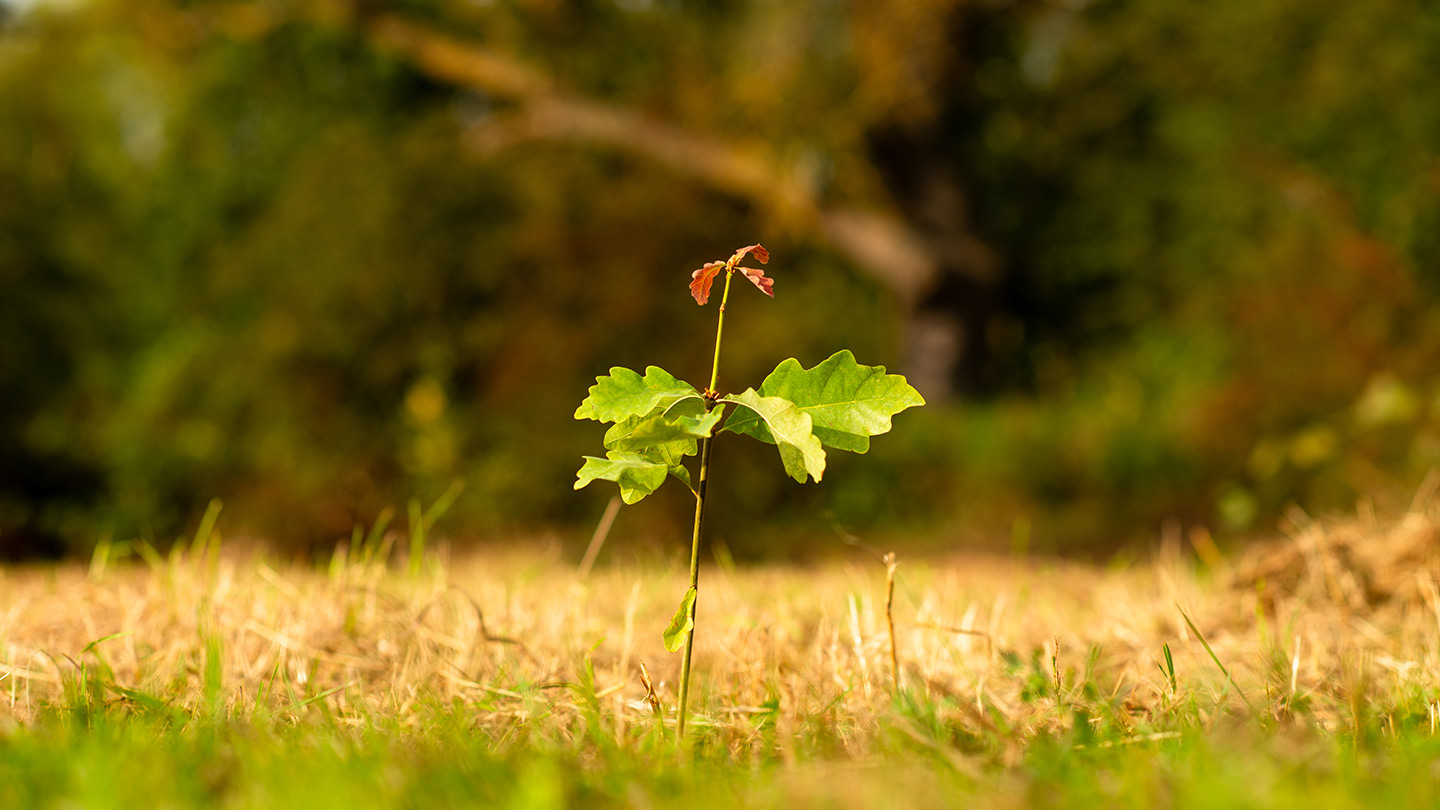Wincle Grange: agroforestry for a sustainable future
Wincle Grange is a working beef farm in the Peak District. Local farmer and owner Chris Price, who studied countryside conservation at university, wanted to combine productive farming with environmental restoration. In this pioneering agroforestry project, strategic tree planting is benefiting both the environment and farm operations. This method, known as agroforestry or silvopasture, is designed to improve the productivity and sustainability of agricultural land.
With support from The Mersey Forest and Cheshire Wildlife Trust, and thanks to funding through the Trees for Climate programme, 11,000 trees have been planted across the 35ha site to create a sustainable farm model for the future.
Trees meet farming
At Wincle Grange Farm, new broadleaf trees have been planted in lanes, allowing cattle to graze between them and use them to shelter from the elements. The trees also provide a food source, with species such as sweet chestnut, hazel and crab apple providing a dietary boost for the herd of Dexter cattle and the farm’s pigs.

The new planting at Wincle Grange Farm integrates with both the farm business model and the existing woodland on the site. Credit: Rachel Bradshaw / Cheshire Wildlife Trust
These tree lanes have also created connecting corridors across the farm, linking existing woodland patches and providing nectar sources for pollinators and berries for birds in the winter.
Environmental and agricultural benefits
Natural flood management
The extensive root systems of the trees help retain water on the farmland, promoting better water infiltration and reducing runoff.
Net-zero
The newly-planted trees are set to play a crucial role in the UK's efforts to reduce carbon emissions, absorbing significant amounts of carbon as they grow.
Supporting nature
The diverse array of berry-bearing and flowering trees provides essential food sources for birds and pollinators.
Boosting biodiversity
The tree lanes create corridors of habitat, providing connections for woodland and open ground species.
Community engagement
Cheshire Wildlife Trust volunteers have helped with planting – getting active, learning new skills and benefiting nature and the farm, as well as their health and wellbeing.
Agroforestry
As one of the first agroforestry projects that The Mersey Forest and Cheshire Wildlife Trust have worked on, Wincle Grange is a great showcase for other farmers in the region.

Local farmer and owner Chris Price, showing volunteers some of the planting that has already been completed. Credit: The Mersey Forest
Leading the way in sustainable farming
Wincle Grange serves as an inspiring model for other farmers looking to integrate trees into their land. With long-term benefits for livestock, nature, and climate, this project proves that farming and forestry can go hand in hand.
Ralph Connolly, senior living landscape officer for Cheshire Wildlife Trust, said:
“We’re all excited to see the positive impacts of the agroforestry scheme unfold over the coming years as the trees mature and the benefits to the environment and farm operations become increasingly apparent.”
Be part of the Northern Forest
Want to plant trees? Whether you’re creating new woodland or extending an existing site, you can reap a whole host of extra benefits.
- Boost biodiversity.
- Provide shelter.
- Protect your soil.
- Fight flooding
Your new trees could be part of the Northern Forest and make a difference for people, wildlife and the environment in the North of England.

Credit: Phil Formby / WTML
Get started today
Speak to an expert adviser from any Northern Forest partner for no obligation advice and support.